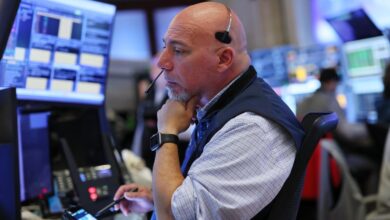Forget tariffs — this U.S. shoe company vows not to hike its prices

As new U.S. tariffs on imports continue to disrupt businesses, many companies are preparing to raise prices for customers to offset the increased costs. However, one footwear company, Keen, based in Portland, Oregon, is taking a different approach. Despite operating in an industry heavily impacted by tariffs, Keen has pledged to keep prices stable this year regardless of how tariffs affect its expenses. This commitment is not just a strategic move to maintain market share – Keen has been proactively restructuring its business for years to mitigate the impact of global trade fluctuations and geopolitical uncertainties.
Chief Operating Officer Hari Perumal emphasized Keen’s long-term preparation for the current tariff situation, stating, “We have been preparing for this for over a decade. Early on, we saw the risks of being overdependent on any one country, so we made the decision to diversify our supply chain well beyond China.” The company, founded 22 years ago and owned by Fuerst Group, has taken steps to reduce its reliance on Chinese manufacturing, expand its presence in the U.S., and diversify its supply chain sources.
Impacts on Shoe and Clothing Prices
Footwear companies are particularly vulnerable to the effects of President Trump’s trade war due to their significant dependence on China for production. According to a TD Cowen analysis, 36% of imported footwear sold in the U.S. is manufactured in China, making footwear and apparel companies prime targets for tariff-related challenges. Global supply-chain expert Jason Judd from Cornell University’s Global Labor Institute predicts that American consumers will feel the impact of higher tariffs through surging prices for footwear and apparel. He estimates that household spending on these items could increase by 70% in the short term and remain elevated in the long run due to ongoing tariff pressures.
The sudden shift in tariff policies has already prompted companies like Adidas to warn customers about potential price increases. Retailers across various industries are also passing on higher import taxes to consumers through “tariff surcharges.”
Adapting to Tariff Changes
Keen’s proactive measures to diversify its manufacturing locations have positioned the company well to navigate the current tariff landscape. With plants in the U.S., the Dominican Republic, and Thailand, as well as partnerships in Cambodia, India, and Vietnam, Keen has spread its production across multiple countries facing varying tariff rates. Perumal highlighted the company’s ability to share costs with its partners and suppliers, enabling them to absorb some of the tariff-related expenses.
Keen’s foresight in diversifying its supply chain and reducing reliance on Chinese manufacturing has proven beneficial as other companies scramble to adjust to the tariff impacts. By strategically spreading its production across multiple countries, Keen has minimized the immediate financial burden of tariffs and maintained its commitment to keeping prices stable for customers.





